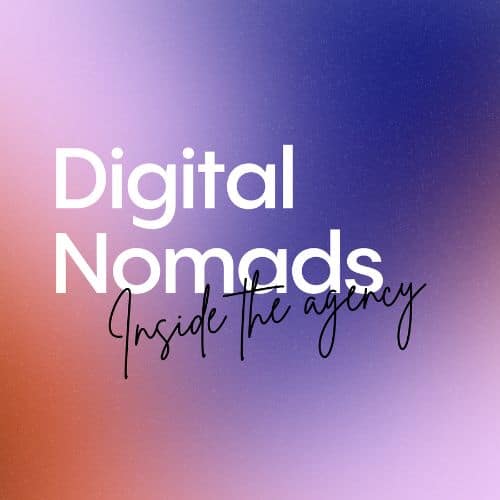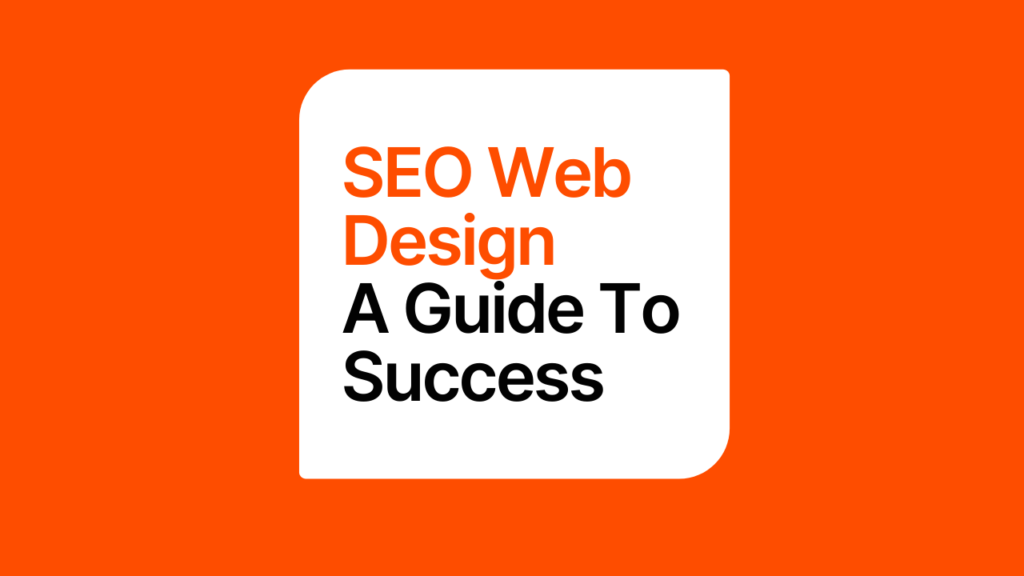
Benjamin Paine
Managing Director at Digital Nomads HQ
What Are Backlinks?
Answer: Backlinks put simply, are links on other websites that link back to your own.
These are normally in the format of hyperlinks, the highlighted text that allows users to click through onto another website or page.
In the SEO (Search engine optimisation) world these are what Google considers “a vote” of credibility or another company vouching for you.

So, Why Are Backlinks Important?
Expanding on how Google views backlinks as a vote of credibility, this is a key reason to why backlinks still to this day are one of Google’s key ranking signals.
The more “votes” or backlinks your website has, the higher (statistically) your website will rank.
Don’t believe me? Here’s some proof.

Backlinks are not new… they have been around as long as the term SEO itself.
But,
They have changed, and the way in which Google gives credibility and its authority to websites from backlinks today has also changed.
In March 2024 (this year) in one of Google’s most recent algorithm changes, they have once again put further parameters in around backlinks, reducing the value of “spammy” low quality links or leveraging methods such as “expired domain” abuse to obtain backlinks.
What Types of Backlinks are Valuable?
A backlink isn’t just a backlink – they are not all equal,
If anything, no two backlinks are ever the same.
Why?
Let’s break down some key areas of how high-quality backlinks are determined.
Trusted Domains or Authoritative Websites
Links are a “vote” of credibility, so the source from which the credibility is being shared from is just as important.
A backlink from a random website nobody’s heard of…. Or a backlink from Forbes or News.com.au – who has more credibility?
In the SEO world this is a concept established as Domain Authority.
The higher a websites credibility, the more authority it shares when it links through to your own site.
A single link from a high DA (Domain Authority) website can be stronger than 1000-2000 low quality backlinks.
So, working on obtaining a couple of credible high DA backlinks can be pivotal in a backlink campaign.
These links don’t come easy (or everyone would do it right?)
But they are worth the effort!

Example of Forbes.com & News.com.au DR (DA) rating.
Anchor Text and Keywords
What is anchor text? – the backlink to which the linking website links out on.
It’s the visible text that a user can click on to navigate through to your website.
This text can be important.
With several industry studies providing strong correlation to having relevant “keyword rich” anchor text linking through to your website increases your website rankings.
There are different types of anchor text for backlinks and they are segmented into 5 core pillars.
Exact Match: Anchor text being an exact match of the keyword you are targeting.
Example: “Buy Sunglasses” linking to an ecommerce product page of Sunglasses.
Partial Match: Similar to Exact match, this will include your target keyword, however, would also include some additional words for better context.
Example “Best sunglasses under 1000” linking to the same ecommerce Sunglasses product page.
Branded Anchors: These are anchor text links that are linking on your branded terms.
Example: “Apple” linking to Apple’s Homepage.
Naked URL: The exact match of the actual URL being linked to.
Example: www.apple.com
Lastly,
Generic: As it sounds, Generic, common words or phrases linking to the target page.
Example: “read more”, “learn more” or “click here” etc.
Note:
Diversity in your anchor text is common and Google also considers “normal”.
Ashley Paine, SEO Account Manager at Digital Nomads HQ

The website (and Page) linking to you is in your niche
A backlink from another website needs to make sense – and Google can see whether it does or worse doesn’t.
Trying to obtain high DA links are important (as we mentioned) however, having a link from a highly authority tech company that links through to a company in health and beauty industry doesn’t make much sense, does it?
So, with this in mind, Google favours links that are from websites within your Niche.
If you’re a company in real estate, think who are the most credible websites in your niche… realestate.com, domain.com etc.
Backlink Is a “Dofollow” Link
Firstly, we need to understand to two main links and their differences;
Dofollow vs Nofollow links
Dofollow Links: The default type of link that passes link equity or “link juice” to the target page, impacting its search rankings.
Nofollow Links: Links with the “rel=nofollow” tag. These do not pass link equity or “link juice” – these are mainly used for links in user-generated content (comments, forums), paid links, or links you don’t want to endorse when linking out.
With Dofollow links providing “link juice” and telling Google to share authority, these are the links that become helpful to your SEO campaign.
Backlink is from a Domain that doesn’t link to you already
There is only so many times a website can “vote” for you before it becomes old news right…
If someone leaves you a review it has impact! … but a second review for the same person? Starts to lose its “vote” of confidence, right?
This is similar to backlinks. You can better measure this by assessing referring domains as opposed to backlinks.
Backlink vs Referring Domain?
Backlinks
Definition: Individual links from one website to another. Think of backlinks as the specific highways that take users from one place on the web to another.
Example: If Website A has three different pages linking to a single page on Website B, that counts as three backlinks for Website B.
Referring Domains
Definition: The unique websites that house those backlinks. Referring domains represent the total number of websites sending traffic your way.
Example: Even though Website A has three links to Website B, it still only counts as one referring domain for Website B.
Here are some statistics on referring domains and page ranking.

Image source: Backlinko
Ready to start building some links?
How to get more backlinks?
Start by creating link worthy assets
Content, content, content.
People will link through to your website or assets on your websites if they are WORTH linking to. This means your content needs to be of a calibre that isn’t easily replicated or often they will just replicate it themselves or …make it better… Awkward.
You have to establish blogs, or video content, tools or calculators that people want to use or reference regularly.
This is why content marketing and SEO in 2024 are so closely tied together and need to work together when developing new content for your business.
Skyscraper content
Skyscraper content is a great segway from the previous technique in creating link worthy assets and overlaps in blog content creation.
What is skyscraper content?
Skyscraper content is competitive content designed to be a better version than the currently viewed as “best” version of a widely referenced resource.
The skyscraper method was invented by Brian Dean of Backlinko and established its name from his saying – The tallest skyscraper in the world is the one that gets the attention – Just link the best resource gets the links.
You want to establish your resource to be;
• More. Comprehensive or Detailed
• Recent, or up to date
• More credible (an author more credible than the last)
• Or a better presentation.
How can you add more value, better resource, better tools and visuals to surpass the previous “best” in this space.

Broken Link Building
What is a broken link – a backlink that no longer connects to the intended target, also known as “a dead link”.
These happen when;
• The target page has been deleted or moved without the original link being updated.
• The URL of the target page has changed and causes a redirect error.
• The website hosting the target page is down or inaccessible.
• There’s a typo or error in the link’s code.
So, how do we use this to our advantage or to build links?
The objective is to find and fix broken links on pages or resources in your niche that have “dead links”.
No business wants broken links on their websites, and the goal is to assist by reaching out to site authors or owners, flagging the broken link and providing a replacement linking option (on your website) to fix the problem, pretty straight forward.
Guest Posting
Yes, guest posting is still very common and very effective.
Now there are some key do’s and don’ts to guest posting which we can go shortly, but first, what is a guest post?
Guest posting (or guest blogging) is the practice of writing and publishing an article on another person’s or company’s website (once again ideally within your niche).
The Process;
Find “NICHE” Relevant Sites: Identify websites or blogs in your niche that accept guest posts and have a good reputation.
Pitch Your Idea: Reach out to the website owner/editor and pitch a topic idea that provides value to their audience.
Provide High-Quality Content: If your pitch is accepted, create an original, well-written, and informative article that aligns with their guidelines.
Include Backlinks: Often you’ll be able to strategically include a link or two back to relevant content on your own website within the guest post.
Do’s & Don’ts of Guest Posting
This is really the don’ts of guest posting… here are things to avoid;
Don’t Spam: Avoid mass submissions of low-quality content. Be sure to focus on genuine relationship building and targeting niche-relevant websites.
Don’t Overly Self-Promote: While guest posting can build your brand, avoid making your content sound like a sales pitch… Provide value! Value builds brands.
Don’t Duplicate Content: Always produce original content for each guest post. Duplicating content (called plagiarism) across websites can hurt your SEO and Google tracks this!
Don’t Over-Optimize for Links: Use backlinks naturally and strategically within the context of your article. Avoid keyword stuffing or unnatural link placement.
Avoid using PBNs or Link Farms: Avoid risky tactics like PBNs (Private Blog Networks) and link farms, as these can severely harm your website’s search rankings.
Infographics and Other Visual Assets
Infographics don’t have the same traction as they used to, we know this.
Now with AI imagery and with platforms such as Canva, the ability to create infographics quickly as opposed to utilising another already created and having to provide credit (a backlink) is becoming a thing of the past.
But!
Much like AI copy, you can’t replicate depth, experience and industry insight.
So, similarly, here, you no longer can just create good infographics… they have to be GREAT.
Submit Testimonials or Case Studies
Companies love to show social proof!
Normally this is in the form of testimonials or case studies of how customers are utilising their product.
An example of this is our recent case study for Agency Analytics:

And in return for our case study, they provided our agency with a nice backlink… and we didn’t have to even ask.
Consider reaching out to current SASS (software as a service) providers or partnerships your company may be affiliated with for opportunities in this space.
Link Reclamation or “Brand Mentions”
The process of finding brand mentions of your company that currently don’t link to your website.
Pretty straight forward.
The process of proactively reaching out to authors, editors on articles to which your brand has be cited and asking them to link back to your website.
Tip to make this process a little easier;
You can utilise platforms to assist in this process, such as mention.com.
These platforms analyses content online and within social platforms, providing you notification on brand mentions for you to proactively reach out.
HARO (Help a reporter out)
As it sounds “Help a reporter out”, HARO is a online free service that connects journalists and content creators with expert sources (this is where you come in).
The Process
Journalists Submit Queries: Journalists needing insights or quotes for upcoming articles submit a query through HARO, describing their topic and the kind of expert they’re looking for.
HARO Distributes Queries: HARO sends out three daily emails (morning, afternoon, and evening) compiling these queries to subscribers.
Sources Respond: Individuals or businesses (i.e. yourself or a member of your business) with relevant expertise can respond to the journalist’s query with a concise pitch, offering their insights and credentials.
Journalist Chooses Sources: The journalist reviews pitches and selects the most relevant sources for their piece. They may quote the source directly or use their insight to shape the article.
This is a fantastic way to obtain very high-quality links, often from news publications (Entrepreneur, Forbes etc.).
Competitor Backlink Gap or “Link Intersect”
In every industry there is often a good handful of “common” links that the majority of your competitors will already have… and often there are many that you may not.
Taking the time to analyse your competitors, whether local or national to find opportunity in links that they may have obtained but you haven’t.
Think about it this way; if a particular website is linking to every competitor website, but not yours – what’s the chances that you could get a link also?
These common links will often be;
• Niche Industry Directories
• Local Directories or Nationwide Directories
• Industry Publications
• Case Studies or Testimonials (This can assist you with the previously mentioned technique in Submit Testimonials or Case Studies)
So, how to find these backlinks that your competitors?
You can utilise tools from many SEO platforms, but my personal favourite is Ahrefs’ “Link Intersect” tool – Helping you easily find sites that link to your competitors but don’t link to you.

Digital PR (Press Releases)
This is similar to traditional PR but with a strong focus on online channels, websites, blogs etc.
The process is to generate newsworthy stories or releases surrounding your company, attracting news coverage or better still interviews and syndication.
It also comes with additional benefits if done correctly, here are a few extra benefits aside from the backlinks that Digital PR can provide;
Establish thought leadership: Position your brand or individuals as industry experts by contributing valuable insights to leading publications.
Manage your online reputation: Whether just as a brand’s online image through proactive content creation or responding to online conversations and potentially utilised to counter previous negative brand mentions.
Lastly, increase your referral traffic: Attract additional traffic to your website from online publications and social media shares – This coming from a credible source or publication can also subsequently increase conversion %.
If your looking for more insight into backlinks and link building strategies, watch our recent link building in 2024 video below;

"Inside the agency" A Digital marketing podcast
Tune in to our weekly Youtube and Podcasts discussing industry changes, news & hot topics across all digital marketing channels.







